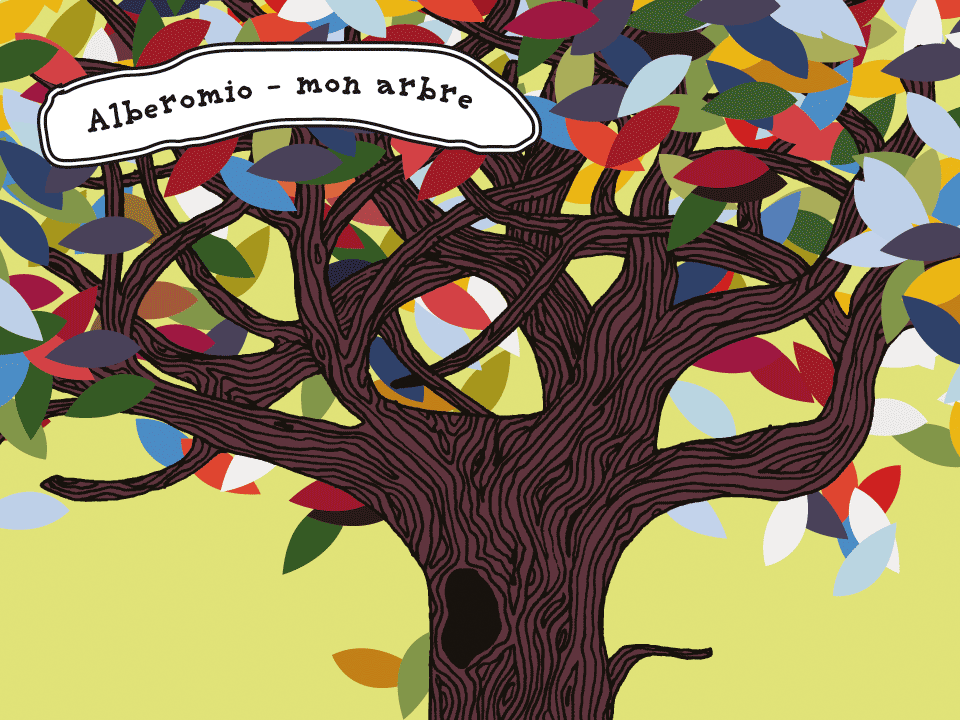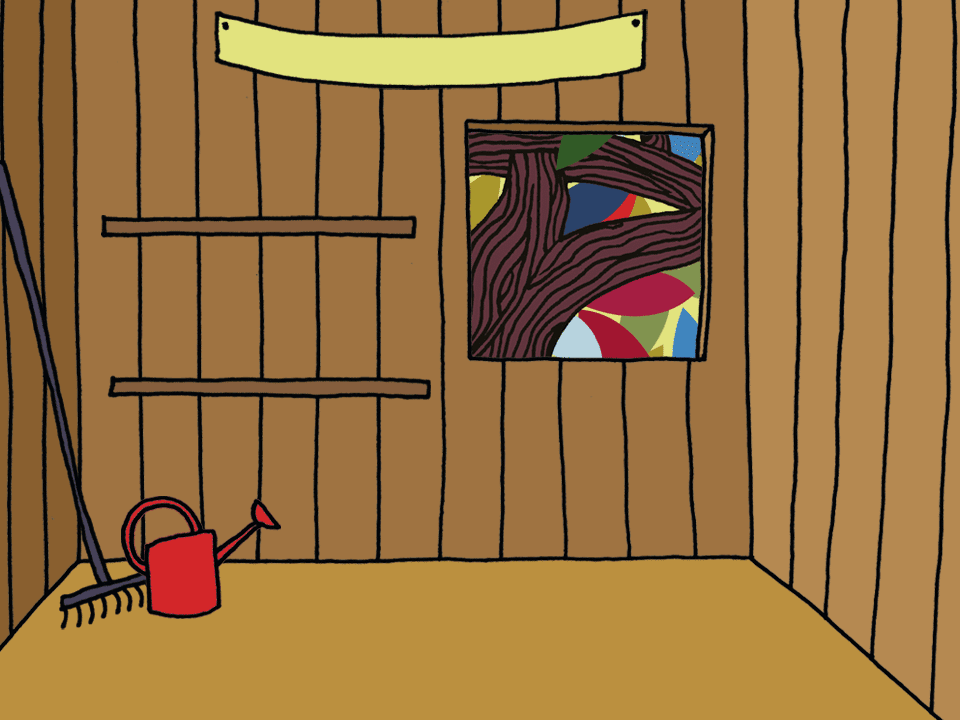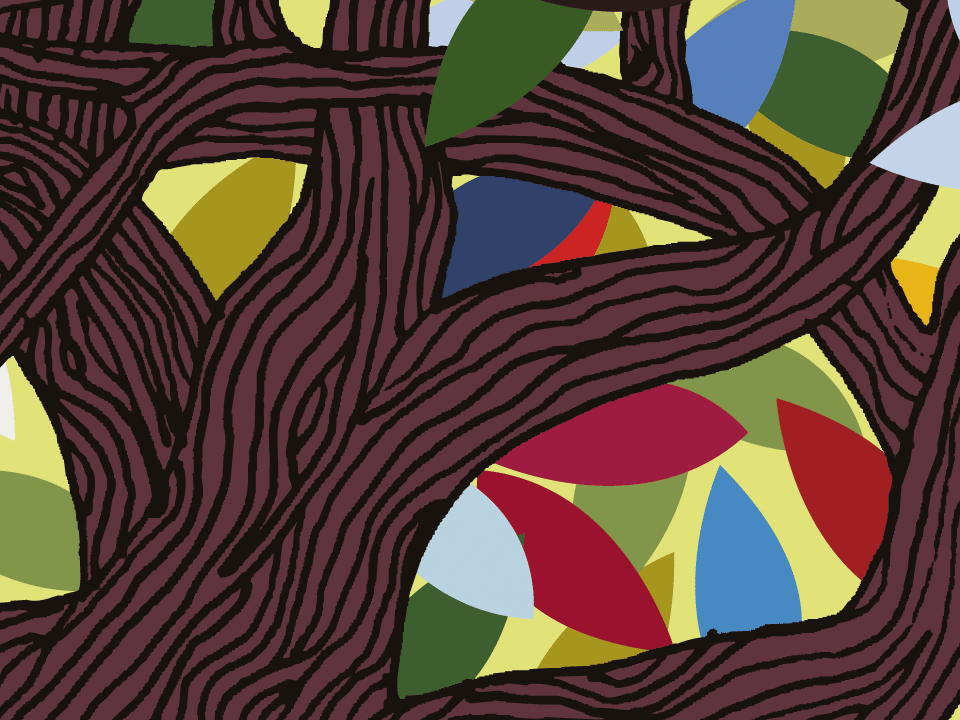PABLO RACONTE : A LA MANIF!
Vos histoires
Alexandre
Alexandre
Aurélie
Aurélie
Ma famille c'est mon père, ma mère et mon frère et sa copine et ses enfants ça d'accord mais ça n'a jamais tenu que là-dedans : parce que c'est aussi les 6 soeurs de mon père et tous mes cousins et cousines et ma marraine qui est une soeur de mon père. Mes tantes sont chacune autant de maman qui ont été importantes à des moments différents de ma vie, et y a même les oncles qui sont importants, et les cousins-cousines c'est comme des frères et soeurs. Moi je fais parti des grands cousins, alors j'ai un rôle de grande soeur, mais heureusement je suis la petite soeur de mon frère qui me demande si je me suis pas envolée avec la grande tempête de mardi. La clé de voûte c'est les grands-parents, qui nous réunissent tous, et savoir où on passe le prochain Noël ça alimente les discussions quasiment dès le 26 décembre parce qu'on est tous éparpillés partout, alors autant dire que là au mois de novembre, le réseau téléphonique de ma famille toujours très actif est à cette période l'année en surchauffe. On essaie de prévoir toujours une fête en plus par an qui en réuni le maximum.
"Mes grands-parents étaient paysans et habitent au bord de la Loire" c'est notre blason. J'aime beaucoup les liens que l'on crée en permanence dans cette famille, on se rapproche, on s'éloigne, tiens, ça fait longtemps qu'on s'est pas vu, tes cheveux ont poussé, han ton pantalon il est affreux, mais pourquoi t'as changé de voiture, meuf tu fais vraiment parisienne maintenant, ah ouais, ça craint, et ton mec il viendra quand ?
L'intronisation d'une nouvelle personne c'est toujours un petit évènement, et sa sortie, jamais tout-à-fait une sortie, mes tantes et consorts prennent encore de tes nouvelles P, au grand dam de mon mec qui soupire et va voir dans une autre pièce si j'y suis. Grandes discussions à table, et confessions dans la salle de bain, au moment du brossage des dents, les garçons sont exclus, et on monopolise cette pièce pendant des heures. C'est la magie de la... familiarité ? C'est précieux, et je suis fière de pouvoir dire que moi aussi j'ai des mamans :) ... en plus des mamans !
Petite histoire et grande histoire, votre documentaire est magnifique.
Béatrice
Béatrice
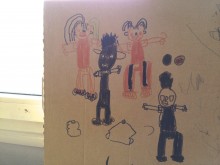
( et un grand merci pour votre webdoc, si joyeux, touchant )
Benjamin
Benjamin
Tout d´abord merci pour ce site tout plein d´histoires et surtout d´amour!!!! Je commence mon histoire par mes parents. Ils sont hétéros. Adolescent j´ai grandi en écoutant du hip hop et les éléments de langage qui vont avec. J´utilisais le mot "PD" a toutes les sauces sans forcément avoir vraiment quelque chose contre les homosexuels. A 18 ans mon frère jumeau m´a annoncé qu´il était homosexuel. J´ai eu mal! Non pas parce qu´il préférait les hommes mais plus parce qu´il l´avait annoncé a notre petit frère qui a 5 ans de moins que nous, avant moi, son frère jumeau...Mes parents l´ont su bien après. Ils sont super mega tolérants, mais mon frère voulait leurs présenter l´élu de son cÅ“ur lorsqu´il en serait certain.
Et voila comment mon beauf, un Allemand, est entré dans la famille! Il a dix ans de plus que nous mais il sait de temps en temps se comporter comme un ado...
Aujourd'hui je vis, comme mon frère jumeau, en Allemagne.
Il y a six mois on regardais de loin ce qui se passait en France et ce que les médias voulaient bien nous montrer. Je regardais aussi l´audition d´enfants de couples homosexuels par les députés de l´assemblée nationale sur youtube et combattait activement ceux qui ne voulait pas que les homosexuel puissent adopter ou être considérer comme un couple aux yeux de la loi.
Et puis un soir, bien arrosés a la bière, mon frère jumeau et moi nous sommes lancés dans une discussion sur l´adoption. Mon frère s´énervait contre moi en me disant que je ne comprendrais jamais la difficulté de l´adoption pour les couples homos. Je ne lui en voulais pas, on était bien arrosé. J´en voulais a tous ces cons emmenant leurs enfants dans ces manifestations, matraquant "un papa une maman gna gna gna" ne se rendant pas compte de la gravité de leurs actes ainsi que du bien être de leurs enfants. Ces mêmes enfants qui pourraient un jour se rendre compte que leur attirance sexuel n´est pas celle que leur parents décrivent comme "normale".
Tout ça pour dire que la connerie est humaine et que nous partageons tous des expériences différentes. Au fond de moi je reste convaincu que la tolérance et l´amour sont des armes bien plus efficaces que le mépris et le dégoût face a ce que l´on ne connaît pas.
Bien a vous et merci pour tout!
Christian
Christian
a ce jour j ai 58 ans ma vie est pleine d'ambuche a 15 ans mon père m'as vauler mon adolesance il buvais il frapet mas mer pour un petit rient mes deux frere mon volais hauci mon adolesance mon regard set retourner vaire les garçons mes mes pas les fille j ai grandi e prix de l age j ai decouver que j aiter gay mes mas vie ses retourner j ai aimer une seul fille de 24 ans jute a l annee 1986 et mon regard est revenu sur les homme mes je suis rexter avec mas femme a l annee 2000 par cauxe d un casser j ai a tout mon entourage que j aiter gay et persson mas rejetais je pleinemant mas vis a ce jour je me bas contre ce cansser mes mas tete je suis pour l instan voila mon histoir en quelle que faute et vive les garçon que j aime et a plusDiane
Diane
ma maman, Nanette à eu deux enfants: Rosine et Franck, dans les années 70 avec l'homme de sa vie, Daniel, pas fréquentable pour les riches parents, commerçants de Pianos. Je suis née en 1984, d'une tromperie supère amoureuse avec JCP un de leurs amis de jeunesse... Neuf mois plus tard, Daniel décède d'un vilain mélange. Maman est malheureuse, mon Biologique absent, on se serre les coudes tous les quatre. On accueille Carole, mise à la porte par ses parents car elle aime mon frère à 15 ans. Maman boit. 9-15 ans internat et puis zou Franck devient mon tuteur. Aujourd hui, Rosine est avocate et mère de trois enfants dans les Pyrénées et Franck, agent SNCF en Bretagne, père de deux enfants. A la naissance de sa deuxième, notre Mamie meure et maman arrête de boire! Quelle héroïne!L'année de mon bac je rencontre un ami de mon oncle au magasin de Piano, 18ans nous séparent et il se la ramène sur tous les sujets mon barbu "encyclopédie"...alors la famille boude sec et moi petite conne....je pars vivre dans son trou de hobbit .Nanette quitte la région parisienne pour s'installer auprès de mon frérot. Après les diplômes, le boulot, un mariage (en se forçant, les trois de ma vie étaient présent..) l'achat d'une jolie maison et puis le divin enfant en 2010, celui de l artiste, puéril illuminé toujours absent. Je prenais le risque de faire un enfant à un enfant...patatra le couple mythique du pianiste et de sa couturière...Les murs tremblent ...un an passe et je tombe amoureuse de la tata, grand secours dans mon quotidien de desperate housewife; il se trouve qu'il s'agit de l'ex du barbu... il les a toujours prise à 20 ans et en sortie de rupture... (je n'ai choisi ni le sexe, ni le statut mais l'être ) Aujourd'hui ma tribu c'est Mata, Bidou et Luna (la youyoute à sa Mata) dans 26 m2 de liberté et d'amour. Nos familles et amis sont heureux de notre bonheur! Vivement les fêtes de Noël qu'on se retrouve à nouveau au complet!
Eleonore
Eleonore
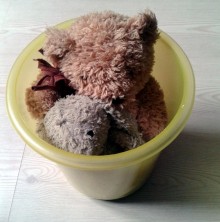
Un papa, une maman, on ne ment pas aux enfants.
C'est pas pour ramener ma fraise, mais il me semble utile de transmettre un humble témoignage en ces temps de confusion des registres à défaut de bonne définition des genres. Alors voilà, c'est l'histoire de plein de gens, dont moi.
Comme certains d'entre vous le savent, la loi française en matière de reconnaissance des enfants a été conditionnée par le besoin du législateur de faire rentrer dans le bon ordre familial les fruits des relations sexuelles pratiquées en dehors du mariage. Pour le dire autrement, c'est à dessein que n'importe quel mari peut reconnaître les enfants de son épouse, quel qu'en soit le géniteur. Le susdit mari reçoit donc, en contrepartie de sa généreuse contribution à la sauvegarde des apparences, le titre de père. Avec un peu de bonne volonté, il peut d'ailleurs le mériter en élevant décemment les enfants qu'il a non pas contribué à produire, mais plus précisément « adoptés ».
C'est ainsi que dans les familles hétérosexuelles, qu'elles soient d'extraction modeste, bourgeoise ou noble (cela existe encore), des palanquées de bambins héritent de pères auxquels ils ne sont pas génétiquement affiliés. Bien. De cet état de fait, on pourrait se réjouir, puisqu'il contribue à ranger tout un chacun dans la bonne boîte. Ceci étant, des heures de talk-shows, des kilomètres de fictions écrites, filmées, chantées sont là pour prouver à la cantonade que la condition des enfants naturels légitimés de la sorte n'est pas toujours enviable. Pourquoi ? Parce que souvent, le Papa et la Maman, animés du désir de bien faire, mentent à leurs enfants en leur dissimulant la réalité de leur conception, l'identité de leur géniteur, et à travers cela, la spécificité de leur origine. Plus précisément encore, on peut dire que ce mensonge consiste à confisquer aux enfants trompés de la sorte rien moins que leur identité. Il arrive que certains d'entre eux se suicident, parfois même assez jeunes. C'est indélicat de leur part, nous en conviendrons tous, après tout ce que leur Papa et leur Maman ont fait pour eux. Mais voyez-vous, on vit moins bien quand on ignore d'où l'on vient, comment on a été désiré, attendu, fabriqué. On vit moins facilement parce que, privé de ces petites informations anecdotiques, on ne sait pas très bien qui l'on est.
Ce qu'il y a aussi, c'est qu'on se perçoit comme moins important aux yeux de son Papa et de sa Maman que la bienséance, l'avis des voisins, le jugement de la société en général. On devient donc une sorte de chose. Pas un enfant, non, un objet de désir, de répulsion, de reproche souvent, parce qu'on constitue, aux yeux des parents menteurs, une preuve à charge de ce que le mensonge ne suffit pas complètement à faire oublier. On est davantage son propre géniteur inconnu que soi-même. On n'a, en somme, aucune raison d'être vraiment au monde, puisqu'en n'étant pas soi-même on n'a ni centre, ni direction. On n'a pas de sens.
C'est donc, à mon avis, à tous les parents hétérosexuels que doit être renvoyée cette phrase qui sert de cache-sexe à nombre d'entre eux. Un Papa, une Maman, on ne ment pas aux enfants. C'est vrai, je suis d'accord. Sortez tous du placard, dignes parents de vos indignes enfants. Ne mentez pas à vos enfants, car mentir les tue, et vous vous en foutez.
Jérémy
Jérémy
Ma mère a deux frères et trois sÅ“urs. Ça me fait deux tontons et trois taties. Mes tontons, Shlomo et Mustafa ont été généreux : ils m'ont offert des taties en plus et une ribambelle de cousins. Avec une première tatie, Dolores, Shlomo en a fait deux, Avi et Ingmar. Puis, avec tatie Milena il a fait Gideon et Amira. Gideon avait un autre papa, Javier, un géniteur on appelle ça. Le tonton inconnu ! Finalement, tonton Shlomo a trouvé tatie Violetta et tatie Milena a trouvé tonton Pancho. Nous ont ainsi rejoint les cousines Sarah et Macha.Quant à tonton Mustafa, il a fait fort aussi : deux cousins d'entrée de jeu, Farid et Selma. Mais après tatie Lorna, et quelques tentatives de trouver une compagne, il a trouvé la bonne : tatie Natasha. Celle-là, elle m'a apporté 4 cousins tout-fait, Ahmed, Paris, Boris et Vladimir. Et voila qu'avec Mustafa, ils se décidèrent à en faire un autre : Yossi, le petit dernier de la tribu des cousins.
Il y a aussi mes taties Rita et Ludmila, qui elles, les radines, ne m'ont offert qu'un tonton chacune : Maurizio et Diego. Une paire de cousin-e-s par couple tout de même, ce n'est pas rien ! Arkady et Rosa puis Anastasia et Irina.
Des figures paternelles, ma mère, Fanon, m'en a offert deux ou trois et un d'entre eux, Micha, est mon parrain. De père, un seul, Klaus.
Et puis, il y a tatie Fatima, la tatiarche ! Elle m'a donné des taties en veux-tu en voilà ! Des que je vois plus, des que je croise, des que je vois souvent. Et puis ces taties m'ont donné des taties, voire des tontons, et ainsi de suite !
Il fut un temps où Fatima, aimait Martha (et vice et versa). Cette dernière aimait bien aussi les garçons. Alors, un jour, un tonton Gustavo est arrivé dans la bergerie alpine où on se rendait à dos d'âne. Neuf mois plus tard, voila cousin Mohammed ! Aujourd'hui, le beau-papa de Mohammed s'appelle tonton Ernesto.
Plus tard, Fatima a rencontré tatie Lola, qui avait déjà eu une fille avec tatie Marcella. Le papa est tonton Nikita. Cette petite fille de 24 ans, Giuliana, c'est ma cousine.
Et puis, il y a ma soeur, Libertad. Celle-là, c'est moi qui l'ai choisie (je suis fils unique) !
A oui : j'oubliais : au dessus de la mêlée, il y a le papi, il nonno, Giovanni, ayant récemment perdu Mauricette, notre mamie. Papi est venu d'Italie, à l'âge de dix ans, il a fait la guerre pour les forces du "bien" bien qu'ayant à l'époque la nationalité du "mal"...Papi, c'est la vieille école. On peut dire qu'il a pas trop bien pris l'homosexualité de son aînée. Et pourtant, il s'en est remis, et tatie Lola, il l'a traitée comme une belle-fille.
Nous sommes une grande famille. Et c'est pas fini ! Une nouvelle génération est en train de se former.
Les cousins et cousines adopté-e-s l'ont été officiellement ou pas, mais ce sont des cousins point barre ! Évidemment que ça pose problème pour les questions d'héritage. Alors, pourra-t-on un jour adopter en couple et léguer un héritage sans être marié ou même sans être lié par des liens de parenté reconnus ?
Léa
Léa
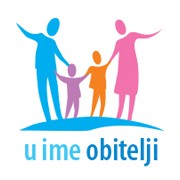
Last may, I was visiting friends in Croatia for a couple of weeks. I went to Zagreb and to Rijeka, intending to take a vacation from my anti-racist activism in Germany. As tourists may do, I casually walked the streets of Zagreb until it became practically impossible to avoid a feeling of rage, growing in my mind alongside this ironic thought : that even though it's not because of the colour of my skin, politics wouldn't leave me alone just because of who I am. At every street corner, I was faced with people who disagreed fiercely with the existence of my family, and with my being in their world.
I was born and raised in a lesbian couple "”I also have a very nice dad, not to forget him. for the last few weeks, this simple biographical fact suddenly took on a political dimension it never had before. I would even say that, since I stopped seeing it as a personal problem, this had no importance at all in my life. It's just who I am ; no more, no less. When I was little, it happened to be a source of suffering, mostly when I had to deal with the extreme commonplace homophobia amongst the other kids in the playground as well as that of French society in the 1990s. It took time to figure out that this was actually a nice family to grow up in, and even that I was luckier than many other kids as i had more parents and never lacked love or respect from them. Looking back, i think this little difference gave me particular strengths in my grown-up life. With time, I realized that i was far from being the only one in my society to be forced, at a very young age, into understanding what the word « prejudice » means.
So, I was seeing those banners showing four figures holding hands. A heterosexual family, obviously. In Croatia then, some people were trying to collect enough signatures to introduce a referendum, in order to write into law in their country's Constitution that marriage shall only unite people of different sexes. In the name of family, they say. First of all, the only way to understand this argument is to conclude that my family is not a family, or that it should never be one in the eyes of the Croatian state. I guess it should just stay underground forever, hiding itself during daylight. Now, from this point of view, marriage is what those activists consider as defining a family before the community, beyond blood or any de facto situation. Not only Croatian anti-gay activists ; in deed, some weeks before, in France, a law was to be voted to let homosexual couples get married, this project faced a huge, unexpected opposition. During the last
demonstration, I read that there were more than 150000 opponents protesting in the streets of Paris. In France as well as in Croatia, they all claimed that the true potential danger to fear is that gay couples could end up having kids and found families. God save us.
I exchanged a few words with one of the activists of this Croatian initiative. With great compassion, I tried to tell her that by participating to such a campaign, she directly hurt real people, she denied their very right to exist to established families like mine, saying that they should never be, that I should not be born. This person was apparently very upset, blessing me very loudly and praying god for the sins of my mothers, at the same time screaming and pushing me away from her stand. Maybe she was afraid of herself, facing her own deeds. I am convinced that she was doing this « good action » thinking of her true Christian values and of the good of society, of the Bible, maybe of her own family. She even said she was not homophobic, no kidding. With geat compassion, I understood this reaction, I guess I would also be upset looking at someone in the eyes and telling her « your birth is a sin, you should never exist». It reminded me of this beloved curse Croatian friends kept teaching me from the first second I stepped into Croatia, « go back into your mother's vagina ».
She was far from using those words, and I am sure she was unaware of the dark dimension of what she was performing. She was not the kind to insult us, or to beat up young gays behind a church after sunset. No, she probably just thought that marriage is a symbol, and family is a value ; maybe marriage is the symbol of Christian love between two people ; and family is the institution of a proper adult life in a Christian society, something like that. Such important values had to be kept, I believe she thinks, because this opinion is like any other, making no harm, just aiming at a better society. No, she does not want us dead.
Quite ironically, she thinks almost like my anarchist friends. Of course for myself, I had known for a long time that my family is no value. That's why we sometimes had to protect it, through lies, so that some people don't recognize it as such. It's only when I considered this anti gay-marriage mobilisation that I realized marriage shall not be reduced to a symbol either. The christians are right. Marriage is the only existing jurisdical means our post-Christian states offer to acknowledge the existence of a family independently from kinship. And because it is a matter of rights, it is very tangible. My mothers were never married or divorced, of course : it was forbidden to them. The countrary would mean that they could have had the possibility to legalize my relationship to my sister, who was adopted by MariteÌ only, because they were forbidden to adopt her as a married couple of course. It means that I could have the possibility to be legally responsible for my sister, to be allowed to sign papers for MariteÌ in case something happened to her, if she would get sick or senile, or next time she finds
herself in a moto crash (god save us). It also means that my mothers could have the possibility to organize their inheritance for us. (Once again, thank god that MariteÌ has probably nothing serious to leave me...)
Apart from some important material issues, marriage can mean a lot in those moments of a daughter's life : all those tangible rights are part of the package hetero-kids get, when the state acknowledges the structure of their family through civil marriage, whether their parents are both biological parents or not. Legalizing gay mariage not only means equality on some symbolic rights for the gay minority, it means that me, and my sister and all my gay-kids friends, have the same family rights as any other person. So, in the name of family...all parents shall be able to marry.
* machupichku materinu means « go back into your mother's vagina » in croatian.
Louise
Louise
Marie
Marie
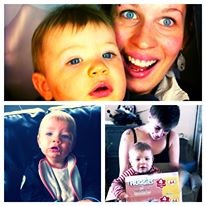
Bonne continuation à votre petite (grande) famille!
En espérant que les mentalités se décident enfin à évoluer.
Marine
Marine
Bonjour Pablo, Brune et Pierrot.Je n'écris pas pour publier mon histoire mais je vais quand même vous en dévoiler une petite partie... C'est le deal ;)
Je suis attirée par les femmes... et un peu les hommes depuis mon enfance. Je ne m'étais jamais posé la question de mon homosexualité pendant longtemps, mais à l'âge de 17 ans la société et les personnes autour de moi m'ont "obligées" à rentrer dans une case, devenir conforme à un type d'individus ... Une identité que je réfute aujourd'hui.
Les dernières manifestations autour du mariage pour Tous ont fait resortir les plus grande horreur, les plus grandes haines, mais ont également et surtout dévoilé des témoignages inoubliables. Les vôtres en font partie, aujourd'hui c'est à notre tour de participer à ce combat.
Je suis actuellemnt en dernière année d'école de journalisme, et dans ce cadre là, je suis amenée à créer un documentaire de 13 minutes sur le sujet de mon choix.
Comme vous l'avez dit, crié, hurlé : c'est bien de parler des enfants mais donnons leurs la parole. Je viens donc à vous avec ma partenaire Chloé pour vous proposer de participer et nous aider à la réalisation de ce documentaire.
Nous souhaitons orchestrer 3 portraits croisés d'enfants de parents homosexuels : de l'enfance (face aux questions que soulève leur innocence), en passant par l'âge adolescent (âge des questions les plus sous-jacentes, et où la construction de d'individu devient aiguë), à l'âge adulte (quand on est conscient de la complexité de la famille et de la société dans laquelle nous vivons, et la revendication d'une identité particulière)...
Nous avons pensé à votre famille pour incarner cette troisième tranche de vie !
Bref, un projet ambitieux qui en est à ses prémices, et que nous allons tâcher de réaliser dès à présent; peut être à vos cotés !
Je vous souhaite une excellente journée et espère avoir de vos nouvelles rapidement !
BIen à vous
Marine & Chloé
Nina
Nina
La delicatezza con cui state raccontando questa storia mi fa emozionare ad ogni pezzettino.È impressionate come state riuscendo a riempire questo spazio angosciante che separa la normatività al bisogno di cura reciproca ed investimenti sentimentali. Vi amo.La délicatesse avec laquelle vous êtes en train de raconter cette histoire m'émeut à chaque petit bout. C'est impressionnant comme vous arrivez à remplir cet espace angoissant qui sépare la normativité et le besoin de prendre soin les uns des autres et de s'investir sentimentalement. Je vous aime.
Pablo
Pablo
Heu... moi mon histoire je l'ai pas mal racontée déjà dans ce docu. Ca, c'était à l'Assemblée nationale, en décembre 2012, et c'est un peu là que tout a commencé...Ronan
Ronan
Mon fils, cela fait quelque temps que nous n'avons pas parlé de cela. Nous avons pour principe avec sa mère de ne pas provoquer les discussions, les questions mais de répondre à ses questions, à ses angoisses (c'est un angoissé). Parfois c'est nous qui évoquons une chose parce qu'il le faut, mais le plus souvent ça vient de lui naturellement. Je lui ai expliqué à ses 7/8 ans avec des mots adaptés que son papa aime les hommes. Nous en avons reparlé quelques fois, et j'ai pu voir combien il avait bien compris ce que cela voulait dire. Dans la voiture un jour il m'a demandé si j'avais trouvé un mari ... "ben oui un garçon que tu aimes et qui t'aime". Pas de grand discours, mon fils a tout pigé. Je lui ai une autre fois expliqué que j'avais aimé sa maman (devant elle d'ailleurs) mais que si nous étions séparé c'était pour être plus heureux car j'aime les hommes plus que sa maman.Nous avons reparlé de cela il y a un an et demi car des copains de l'école l'avait traité de pédé et il avait pas aimé. Mais il n'avait pas compris que c'était pareil qu'homosexuel. Il savait que, pour ses copains, ça n'avait pas l'air bien car ils ont dit cela d'un air méchant. Je lui ai dit que vraisemblablement ses copains ne savaient pas non plus exactement ce que ça voulait dire. Et on a discuté de la définition des mots et de ce que cela voulait dire de se moquer des gens avec des mots comme cela. Je lui ai expliqué qu'il ne fallait pas répondre par des insultes mais dire aux copains "hey tu sais ce que ça veut dire ? non tu ne sais pas ... ben moi oui je sais, mon père me l'a expliqué ... alors tant que tu ne sauras pas, tu ne la ramène pas !". Il est reparti gonflé à bloc.
Du discours ambiant depuis quelques semaines, je ne sais pas comment ça l'a affecté. Nous n'en avons pas parlé ensemble. Peut être ce week-end.
A priori quand quelque chose le chiffonne, il en cause donc je pense qu'il est passé au travers. je préférerai, j'avoue. Je reste vigilent. Ce ne sera pas toujours simple je pense. Mais ça me rend fou qu'il doive supporter l'homophobie alors qu'il n'est pas - à priori - concerné au premier chef. Je ne parlerai pas de "porter une croix", car je suis athée. Et je ne porte pas - moi - de croix avec mon homosexualité, alors lui le doit encore moins !!!
Moi par contre j'ai pas morflé. Cette haine insidieuse m'a pas mal perturbé. Je ne voulais pas d'un référendum pour éviter que ça dure.
ça m'a touché plus que jamais, alors que je n'ai pas eu affaire à une manifestation de haine directement contre moi. Les propos généraux sur les homos, sur les familles, sur les enfants d'homos me touchaient quand même dans mes tripes. Je me montre peut être plus militant pour la cause que je ne le croyais.
[...] Avec ce débat et ces propos haineux, insidieux, ça m'a donné envie de réagir. D'une part, j'en ai parlé ouvertement autour de moi, à mon boulot (je ne suis pas du genre à clamer à corps et à cris "je suis homoooooooo", je ne le ferai pas si j'étais hétéro, et j'ai plus que cela dans mon état d'être humain ... humaniste, gauchiste, fan de photo et de musique électro, de cinéma ... et je ne le clame pas non plus à corps et à cris !). D'autre part, j'ai repensé aux paroles d'Harvey Milk "il faut que chacun connaisse un ou une homosexuelle parmi ses proches, pour faire changer les regards" dans l'idée de penser le coming out comme acte politique permettant de changer le regard des gens, et faire réagir petit à petit. Enfin et dernière raison, ce slogan lancé sur le site des jeunes UMP "tu ne seras pas pédé mon fils".
Alors peut être vais je m'y mettre pour me faire évoluer moi, continuer, et contribuer au débat. Et pourtant je ne suis pas un militant de la cause gay. Mais de la lutte contre les discriminations OUI. Bon il se trouve que les copains noirs sont pas les derniers à être homophobes. Les beurs non plus. Mais les homos les aiment beaucoup. c'est cliché mais c'est vrai.
Dans ton propos Pablo au cours de l'audition parlementaire, j'ai été scotché par tes paroles sur : je ne parlais pas d'homosexualité à propos de mes mères avant que les médias (ou l'extérieur) viennent en parler. C'est tout à fait ce que je dis un peu plus haut en parlant de mon fils qui devrait subir à son tour l'homophobie latente. C'est dire comme tes paroles ont fait écho en moi.
Vanessa
Vanessa
J'ai 34 ans et 2 petites filles magnifiques avec mon ex-compagne, en Belgique. Facilement. PMA. On en a porté une chacune. Elles ont le même géniteur, donneur inconnu. Bref..J'ai regardé et écouté l' "audition homoparentalité" de Pablo et je voulais juste vous dire à quel point vous m'avez touchée. C'est exactement le message que je rêve de faire passer autour de moi, tout simplement, à travers ma famille (qui me semble tellement simple et saine, puisque remplie d'amour).
Votre famille est belle et j'espère que mes filles vont grandir aussi sereinement que vous! ...Si ce n'est qu'elles ont, elles, deux mamans séparées..
Alexandre
Abécédaire
Blanc
Communautarisme
Féminisme(s)
Genre
GPA - gestation pour autrui
Homophobie
Intersectionnalité
Islamophobie
Laïcité
LGBT
Performer
PMA - procréation médicalement assistée
Privilège
Queer
Racisme
Théorie du gender
Trans
XXY - Intersexe
LGBT
LGBT, c'est un sigle qui veut dire "lesbiennes, gays, bisexuel-les et transsexuel-les", et qui est utilisé par les militants qui se battent contre les discriminations subies en raison de l'orientation ou de l'identité sexuelle. On dit d'ailleurs plutôt "le mouvement LGBT", ou "les associations LGBT".On y ajoute parfois un I pour intersexe, et un Q pour queer ou "questionning". Il manquerait les gens qui ne choisissent pas leur partenaire en fonction de son genre, les pansexuels, comme nous raconte Laci Green.
Bien sûr comme dit notre pote Suzanne, "les sigles c'est toujours insatisfaisant, parce que ça couvre pas toutes les identités ni toutes les orientations, ou bien parce que ça met quand même des étiquettes et que tout le monde n'en veut pas, ou encore parce que ça fait comme si c'était un groupe super unis et qu'il n'y avait pas de discriminations à l'intérieur même des LGBT (par exemple envers les trans)".
Du coup certains disent plutôt appartenir à une communauté queer tout court, notamment en Italie, et mes potes en France (moi c'est Brune) en général ils disent "trans-pédé-gouine", comme par exemple le pink bloc de Paris.
